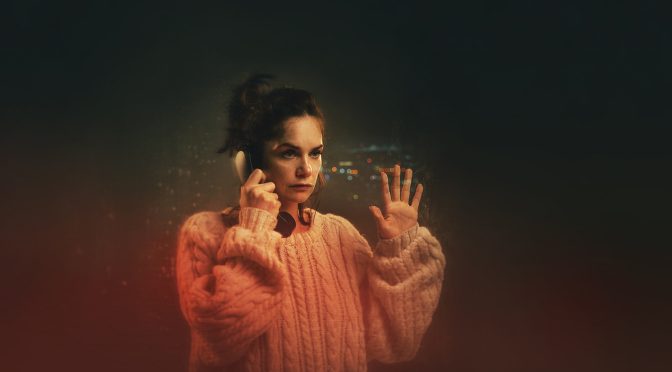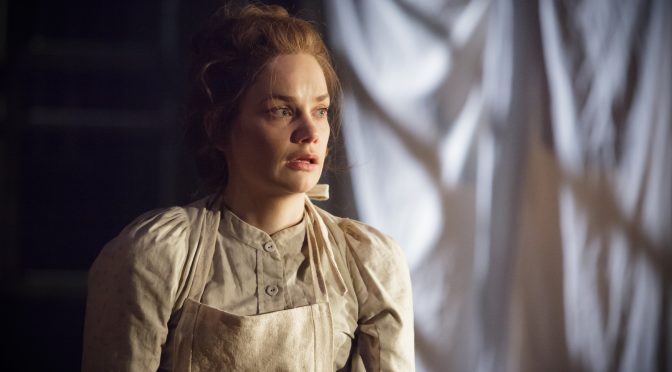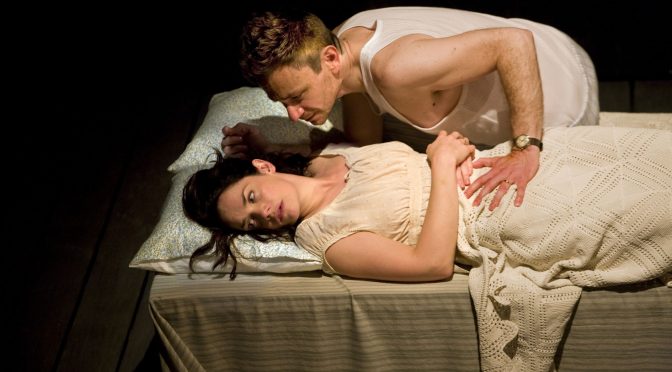Jean Cocteau’s 1928 play presents one side of a telephone conversation between a woman and her former husband. It’s an intimate piece, at times unbearable so, as the woman’s despair at the end of her marriage threatens her sanity. The Human Voice is depressing, but undeniably powerful.
With such a stripped back idea – just one woman talking – there is a sense the play is better suited to small venues. The only other production I’ve seen was in the tiny Gate Theatre. In truth, the show is a little lost on a West End stage, a problem exacerbated by Jan Versweyveld’s design for this production which reduces what we see to the size of a cinema screen.
Our current dependency on phones is presaged by Cocteau – it makes the urgency of crossed lines and calls cut off even greater than the writer imagined. Audience members struggling to last this hour long show without checking their mobiles confirms all this. But it is the feelings of someone abandoned that drive the show rather than a comment on technology.
Director Ivo Van Hove’s adaptation does well to emphasise the sophisticated emotions Cocteau documents. And the intensity in the script is brilliantly depicted by Ruth Wilson. From initially pretending she is coping well with the breakup, to totally breaking down, Wilson’s confidence in the role is brave and justified.
Moments when her character is manic, literally barking like a dog, are balanced by prolonged stillness – it’s hard to work out which is more uncomfortable. If the production has a flaw, it is that this discomfort becomes confrontational. Van Hove’s ending, suggesting suicide, is extreme. And turning parts of the script into a monologue (so that we further question the characters sanity) jar. Thankfully, Wilson’s excoriating performance manages to save the production.
Until 9 April 2022



